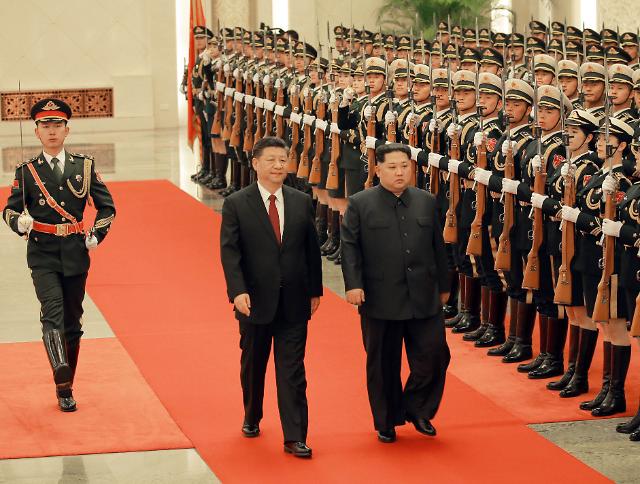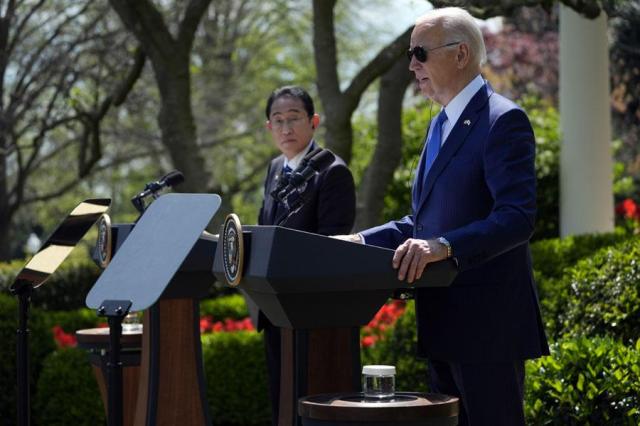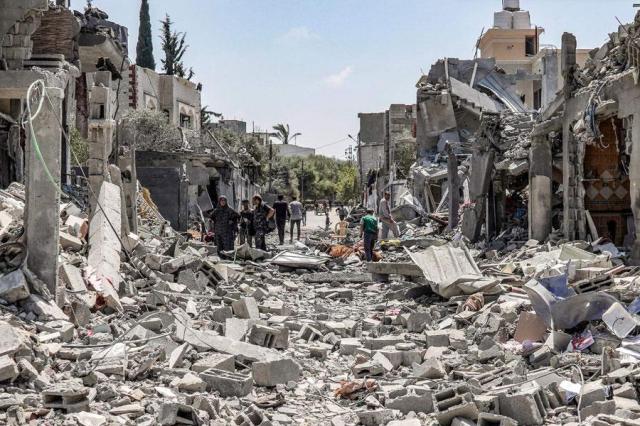
[KCNA / Yonhap Photo]
(This column was contributed by Kim Sang-soon, president of the East Asia Peace Research Association.)
SEOUL -- China has welcomed the Panmunjom Declaration but it seems to be in a new worry. What does it mean to China that inter-Korean reconciliation leads to peaceful stability on the Korean peninsula, the pursuit of common prosperity and national unification? China judges on a short-term and long-term basis.
SEOUL -- China has welcomed the Panmunjom Declaration but it seems to be in a new worry. What does it mean to China that inter-Korean reconciliation leads to peaceful stability on the Korean peninsula, the pursuit of common prosperity and national unification? China judges on a short-term and long-term basis.
In the short term, inter-Korean reconciliation is advantageous for China because it can eliminate anxieties such as the North Korean nuclear issue, the recurrence of war on the Korean peninsula, the leakage of nuclear materials, and North Korean refugees. With the stability of the Korean peninsula, China can concentrate more on other regions and fields.
In the long run, China's worries are that 'unified' inter-Korean cooperation or 'cooperation with a unified effect' is never advantageous for China. Inter-Korean cooperation could prompt the two Koreas to find responsibility for separating the Korean peninsula, increase independence and consciousness on foreign affairs, initiate territorial disputes with neighboring countries, improve their nuclear development capability and continue the presence of U.S. troops. Inter-Korean reconciliation has created a new level of dilemma.
If any form of declaration is made within this year and China is excluded from this process, it will be a great shock to China. But South Korea and China do not have to get caught up in unnecessary debate about who is a signatory to the armistice. What we need now is the permanent pursuit of peace on the Korean peninsula. To this end, the international society needs to change its thinking.
First, the frame for resolving security problems should be as simple as possible and aim for a common goal. Achieving the goal of permanent peace on the Korean peninsula should be prioritized, whether it be three-way, four-way or six-way.
Second, we need to present creative and concrete alternatives. In order to achieve the common goal, we must eliminate stereotypes, face, and cause and have to think about creative alternatives. Economic cooperation in Northeast Asia requires the participation of all members of the international community.
Third, the Panmunjom Declaration and the declaration of ending the war should be legalized. It should be legislated through the establishment of national laws, international laws and a new law on the integration of the Korean peninsula.
The common premise of this process is that they must continue to communicate closely through various channels. Inter-Korean talks do not need interpreters, but it is not possible to recognize the intention of the other side accurately because of the long interruption of dialogue. To ensure accurate and seamless mutual understanding, there should be a variety of dialogue channels.




